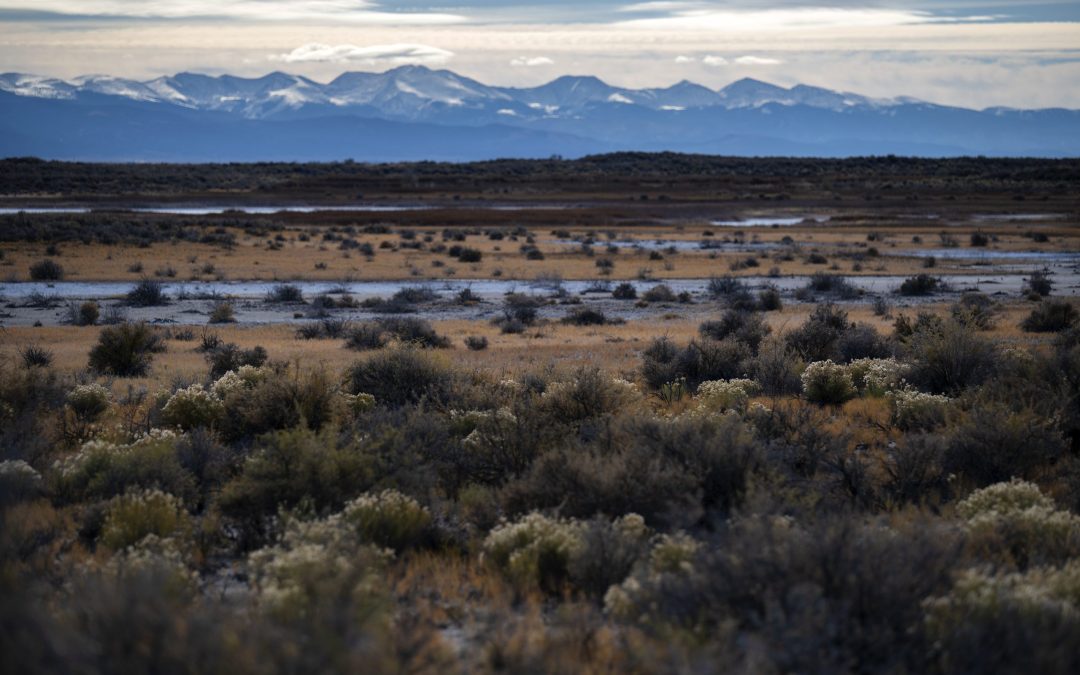Thousands of acres of Colorado wetlands and miles of streams, left unprotected by a U.S. Supreme Court decision last year, would be shielded under a hard-won measure that was approved this week by a bipartisan group of state lawmakers.
Environmental advocates say Colorado leads the nation in adopting such regulations, which will replace certain Clean Water Act rules that were wiped out last year in the U.S. Supreme Court case Sackett v. EPA.
“Colorado is the first state to pass legislation on this issue,” said Josh Kuhn, senior water campaign manager for Conservation Colorado. “It had a lot of attention because of the magnitude of the bill. There were dozens and dozens of meetings to try and strike the right balance. We’re really happy with this final piece of legislation.”
The Sackett case sharply limited the streams and wetlands that qualify for protection under the Clean Water Act, a decision that water observers said had a particularly broad impact in the West. In Colorado and other Western states, vast numbers of streams are temporary, or ephemeral, flowing only after major rainstorms and during spring runoff season, when the mountain snow melts. The Sackett decision said, in part, that only streams that flow year-round are subject to oversight. It also said that only wetlands that had a surface connection to continually flowing water bodies qualified for protection. Many wetlands in Colorado have a sub-surface connection to streams, rather than one that can be observed above ground.
The legal decision came after decades of federal court battles over murky definitions about which waterways fall under the Clean Water Act’s jurisdiction, which wetlands must be regulated, what kinds of dredge-and-fill work in waterways should be permitted, what authority the act has over activities on farms and Western irrigation ditches, and what activities industry and wastewater treatment plants must seek permits for.
With the passage of House Bill 1379, which passed Monday, Colorado wetlands are once again formally protected, as are ephemeral streams, said Kuhn.
“It also sets the federal regulations as the floor, not the ceiling, so that Colorado can go above and beyond those to ensure we are protecting our resources,” Kuhn said.
House Bill 1379, sponsored by House Speaker Julie McCluskie, D-Dillon, Rep. Karen McCormick, D-Longmont, and Sen. Dylan Roberts, D-Frisco, was one of two proposed bills that sought to address the regulatory gap created by the Sackett decision. Senate Bill 127, sponsored by Sen. Barbara Kirkmeyer, R-Brighton, was the second.
While Senate Bill 127 ultimately was not approved, a number of exemptions it contained to address concerns of farmers, miners, developers and some cities, were eventually added to House Bill 1379 and Kirkmeyer signed onto the measure as well, becoming a Senate sponsor along with Roberts.
Those exemptions were important to gathering the support of farm and real estate interests, among others, according to John Kolanz, an attorney who represents developers and who served in a state workgroup that helped lay the groundwork for the new regulations.
“There was significant movement from the first draft to the end. Barb’s bill played a big role in that. This is an important program that touches a lot of people, and interests and activities. I think the end result is pretty good,” Kolanz said.
Among the exemptions that were added is a rule that specifically exempts maintenance work on irrigation ditches and canals. Another exempts work that disturbs less than one-tenth of an acre of wetland or 3/100th of an acre of a streambed.
“If you’re a developer … and you’re under those thresholds, you don’t need a permit, you just need to follow best management practices,” said Kuhn, who was among the negotiators who hammered out the details of the final legislation.
In addition, if a pipeline is installed or a ditch is lined, that activity is exempted if it can result in water conservation.
House Bill 1379 also gives regulators the option to add one staff person on the Western Slope to help with program administration in that region, and provides nearly $750,000 in the state 2024-25 fiscal year budget and nearly $250,000 in the next year to get the new regulatory program, housed within the Colorado Department of Public Health and Environment, up and running.
Senate Bill 127 had proposed housing the program within the Colorado Department of Natural Resources, due to concerns about an existing backlog in the CDPHE’s wastewater discharge program.
With the decision to house the program in CDPHE come requirements that require frequent reporting to lawmakers to ensure that health officials have the resources they need to review and issue permits, Kuhn said.
The Water Quality Control Commission will have until Dec. 31, 2025 to finalize the rules implementing the new law.
The bill is awaiting the governor’s signature.
“In Colorado, where the rivers and streams are the lifeblood of our land, our agriculture, and our communities, the importance of water cannot be overstated,” Kirkmeyer said in a text message. “I believe that House Bill 1379 will be the strongest protection for Colorado streams and wetlands that we have had in the last 50 years.”



 Print
Print